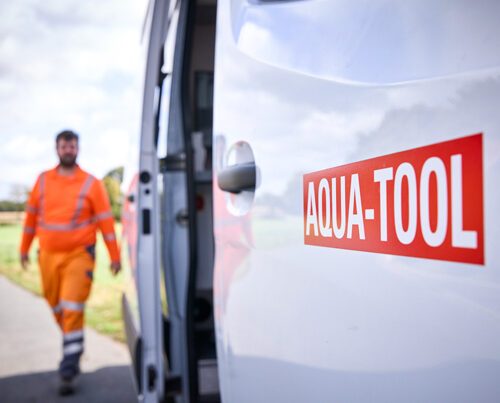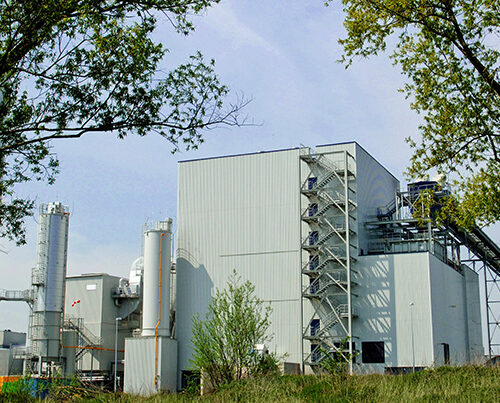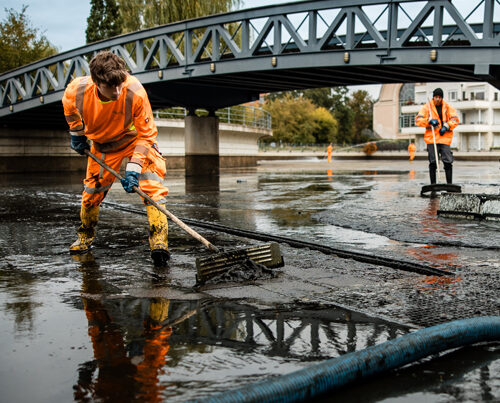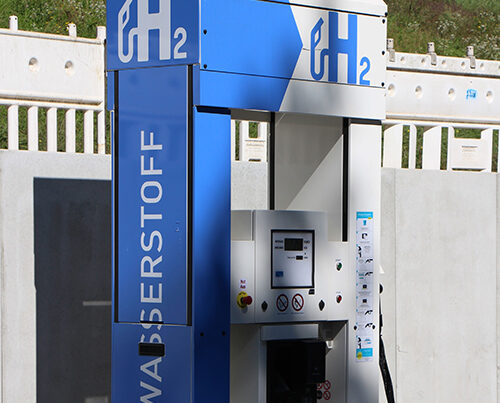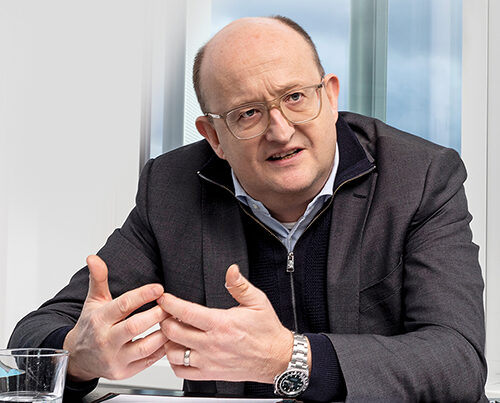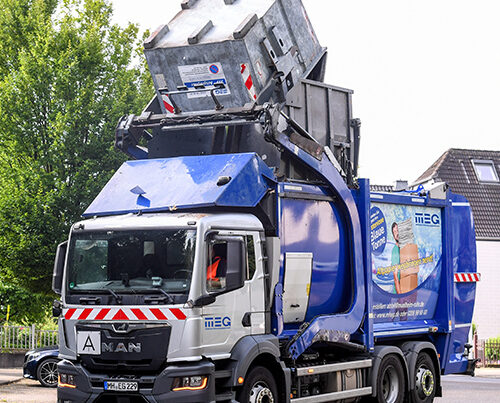REMONDIS Recycling‘s branch in Stuttgart is a pioneer when it comes to digitising its glass container collection processes – and has now collected, organised and stored all of its container GPS data digitally. With the help of BINITY, a software solution from REMONDIS Digital, it has been able to record five further areas around Stuttgart and digitise all of its routes.
BINITY – Digital waste management
The software solution BINITY provides a digital overview of the situation – depicting all the bins, vehicles and routes. This enables the routes to be planned efficiently and makes the whole collection process more transparent. What’s more, the software makes it possible for new drivers to learn their jobs, for replacements to be found if a driver calls in sick and, if there is an unexpected interruption, for lorries to continue exactly where the work had stopped. All data is available at a glance – or rather with a single click. And BINITY can do even more: if a bottle bank is equipped with a sensor, the software can also measure the fill level.
In addition to saving resources, BINITY creates transparency across all processes and provides detailed information for reporting and further optimisation potential.
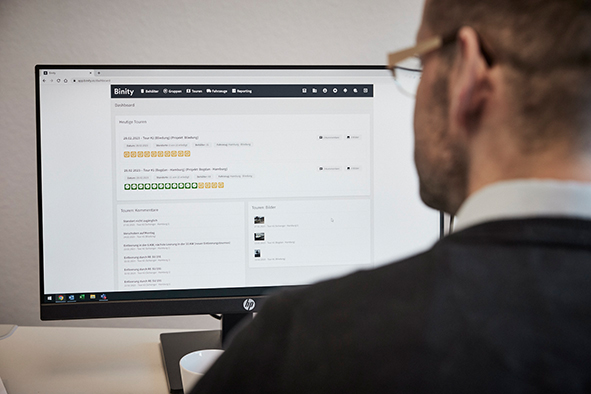
Pascal Röhm, dispatcher at REMONDIS Recycling Stuttgart, reports on his experiences with BINITY and has a look at the future of glass container collection.

Mr Röhm, why did you decide so early on to push ahead with digitalisation in your branch?
Pascal Röhm: We were confronted with challenges that revealed a shortcoming – namely having an overview of all tours so that each container is emptied regularly.
A solution that could show us the fill levels, the tours travelled and the updates at a glance simply had to be digital.
How have you dealt with the fact that recycling companies are obliged to report the GPS coordinates of their container locations for glass collection?
Pascal Röhm: Of course, we already had some data. It took a long time to find the coordinates, but fortunately we had already worked with WebFleet.
Entering all this data into the BINITY system and being able to work with it directly provides a good basis for further efficient work.
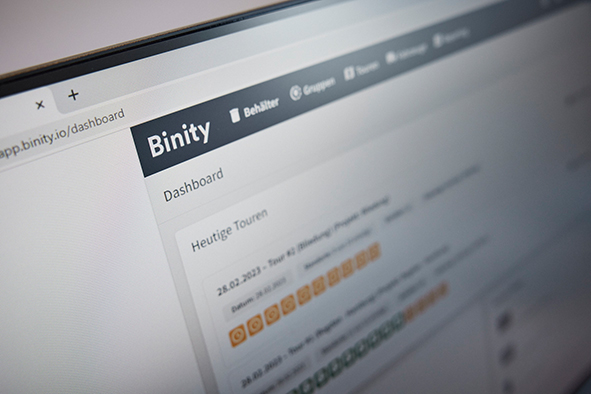
In which areas does BINITY provide you with help and support?
Pascal Röhm: As all container locations and the current fill levels are now entered in the system, the existing processes for creating routes can be simplified, and more efficient rotas can be created.
We can directly see digitally which drivers have emptied which containers and where containers are about to overflow.
BINITY has also helped to open up the Heilbronn and Esslingen areas. This makes everything clearer and more economical.
And what do your drivers say about the BINITY solution?
Pascal Röhm: It was a big change at first. But after six months, everyone was used to the new system and is now working with it.
Especially for our experienced drivers, for whom the changeover meant more change than for our younger drivers: After decades of working with the pen and paper system, at some point they were no longer issued with paper lists. But: they were able to recognise that the digital way is the future.
How do you imagine glass container collection in 2030?
Pascal Röhm: My wish is for complete digitalisation. And I would say that we are well on the way to achieving this!
Until then, however, a few things still need to change: For example, we still process our weighing slips and orders for repairs manually. A large proportion of communication is also not yet digital at the moment.
My solution would be to personalise our tablets to the trucks so that orders can be sent directly to the tablet of the respective driver.
To what extent does BINITY play a role for glass container collection in 2030?
Pascal Röhm: I think that BINITY will be in a stronger position in 2030. It will be increasingly digitalised in all areas.
Overall, a digital collection of glass containers is an efficient and flexible method – also for managing information. It makes organisation easier as no paper is needed. So we save time and resources!
From a driver’s perspective
Raphael Klose, a REMONDIS driver in Bad Tölz, loves his job – “I feel at home on the truck and collecting glass. It’s a nice job. Especially working where others go on holiday – in the Munich area.” He has been working with BINITY for almost a year. Here he also reports on his experiences with the software.
How would you describe BINITY in your own words?
Raphael Klose: It’s a system that definitely makes my work easier and more pleasant. And I actually work faster with this tool. I even see it as something forward-looking. So it’s worth looking into it. Why? Because there is only one way forward. Anything else means stagnation.
What do you find useful using BINITY? How does it help you?
Raphael Klose: As we used to have extra lists for everything, I was very happy to ‘get rid of paper’ in the early days of BINITY. I often couldn’t even read my own handwriting. In addition, the desire for data collection and statistics is getting bigger and bigger – which is being fulfilled bit by bit with BINITY.
I also appreciate the GPS data in the BINITY app. It makes driving much more relaxed than if I had to type new addresses into a navigation system myself.
One of BINITY’s great strengths is the following: If I have to cancel for any reason, anyone can sit in the driver’s seat, get a short briefing and use the BINITY app to drive the tour in an area that is unfamiliar to them. Without having to call and ask those responsible, the person could drive to the glass containers and know everything they need to know thanks to the app.
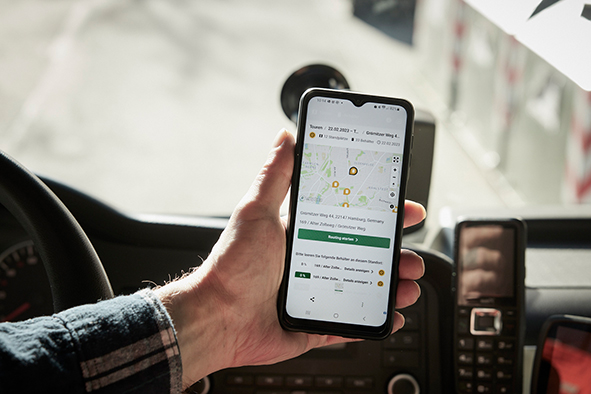
What is your favourite thing about BINITY?
Raphael Klose: The fact that I ‘get rid of paper’, i.e. I can enter data quickly in the app, get immediate feedback and am guided by the integrated navigation system, which is linked to the planned tour. And when small functions are improved, I’m as happy as a boy at Christmas!
I also love the support from the BINITY team: the patience and detailed explanations they have for me are another plus point.
Do you also see the solution in the future of glass container collection?
Raphael Klose: If some functions are expanded further, then definitely. With BINITY, organising individual container collection is easier and the system fulfils the need for a flexible container system.
Image credits: © REMONDIS







